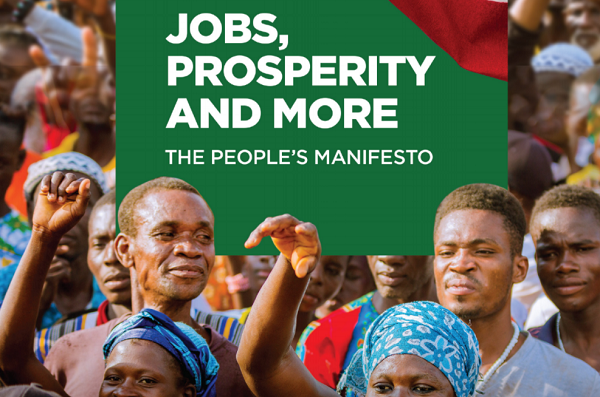The National Democratic Congress (NDC) has blamed the sky-rocketing public debt stock on the unprecedented borrowing of the ruling New Patriotic Party (NPP).
The NDC stated that the high borrowing of the NPP government in the last three and half years does not only increase the country’s public debt stock but also “increased its debt servicing and worsened its debt sustainability”.
According to the largest opposition party, “the NPP Government has increased Ghana’s public debt from GH¢120.30 billion in 2016 to about GH¢258.4 billion as at end-June 2020”.
“Under the NPP the public debt is projected to increase to GH¢290 billion by end-December 2020 (2020 Mid-Year Budget Review), with an addition of about GHC170 billion to the public debt stock in the last four years, with very little to show for it”.
Still elaborating on the current debt situation in the country, the NDC said, “the public debt stock as a share of GDP increased from 56.8 per cent in 2016 to 67 per cent as at end-June 2020 and projected at 75.8 per cent of the rebased GDP by end-December 2020.
“As a demonstration of the incompetence of the failed Akufo Addo Government and his economic management team, the public debt as a share of GDP deteriorated from 57 per cent to 67 per cent further within one and a half years between 2018 and June 2020”, the NDC added.
The NDC further states that “debt service increased from GH¢16.13 billion in 2016 to a projected value of GH¢38.5 billion by end December 2020.
“Debt service as a share of domestic revenue increased from 51.9 per cent in 2016 to a projected value of 73.5 per cent by end December 2020, while debt service as a share of total expenditure increased from 32 per cent in 2016 to a projected value 39.4 per cent by end December 2020”.

The NDC believes the incumbent government has not really handled the country’s debt and deficit issues very well under the three and half years in office. To this end, “the next NDC Government will adopt a number of financing strategies to manage Ghana’s public debt effectively”.
Several measures and policies have been outlined by the NDC in their 2020 manifesto that they believe will result in better fiscal consolidation in the next four years, should the NDC come to power.
The NDC said that when they come into power, they will “strengthen the domestic borrowing market by enhancing the auction (treasury) and book building (bond) approaches that were introduced in 2015 and also enhance external market borrowing strategies, including the use of the sinking fund as a tool for “buy-backs” and redemptions”.
In addition, they promised to use “the EXIM Bank as an agent for trade finance (credit and guarantee) in collaboration with other agencies such as Ghana Export Promotion Authority (GEPA), Ghana Standards Authority, AGI/Chamber of Commerce and Co-operatives.
The NDC also said they will enhance “liability management by restructuring domestic and external debt and international bond issuance as well as building and maintaining cash buffers to support debt servicing, through efficient application of the sinking and infrastructure funds”.



















